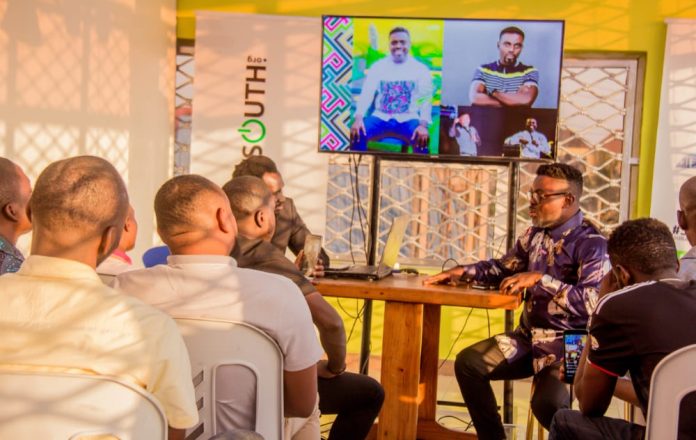The Creative Economy E-Learning programme is designed to provide invaluable support to aspiring and early-stage, young African entrepreneurs utilizing the British Council Creative Economy E-learning Portal. It is designed to stimulate the creation of thriving ecosystems for creative entrepreneurs in Music, Art, Fashion, Game Development, Theatre Production, Movie Production, Crafts, Festival Production and more.
In recent times, the Nigerian Creative Industry has witnessed an unprecedented growth that has brought a skyward number of artists, writers, performers, fashion designers and movie producers’ international recognition. However, studies show there’s still a huge opportunity for growth. Considering that Nigeria has a huge out-of-work youth population who are turning to the Creative Economy for sustenance, there’s therefore an urgent need to bridge the knowledge gap which will unlock the potential in the space.
Aware of this, the British Council in partnership with Microsoft developed and unveiled an e-learning portal in 2021 to bridge the knowledge gap for the creative economy practitioners. The Creative Economy E-Learning Programme (CEEP Training) is for aspiring and early-stage Creative entrepreneurs between 18 – 35 years of age. The programme is focused primarily on Creative Entrepreneurship and Social Impact.
There are two tracks and participants are expected to participate in only one. The tracks are “Creative Enterprise” and “Social Impact”. The Creative Enterprise has two modules namely “Launching Your Creative Enterprise” and “Growing Your Creative Enterprise” while the Social Impact track also has “Social Impact Through Entrepreneurship” and “Creative Economy Policy” modules.
Upon completion, successful participants would receive completion certificates as evidence of their achievements. They also stand a chance to access Investment from Angel Investors and more opportunities (including grants) from British Council.
The CEEP training is scheduled to be held virtually and at a physical location in Owerri (Imo State) and Port Harcourt (Rivers State). Details are as follows,
● In-person training will hold from 7th – 10th of March 2022 (South-East) and 14th – 17th March, 2022 (South-South)
● Virtual training will be held from the 14th – 17th of March 2022 (South-East) and 21st – 24th March 2022 (South-South)
Registration links:
● South-East: bit.ly/se-ceephubs
● South-South: bit.ly/ss-ceephubs
About #StartupSouth
StartupSouth believes in the power of entrepreneurship for development and is inspiring a generation of founders building innovative and scalable solutions in Africa’s emerging commercial cities. Starting from the South-South/South-East, Nigeria.
About Futuresphere
FutureSphere Business & Innovation Hub is a multi-functional, multi-purpose co-working space for creative entrepreneurs in Port Harcourt. FutureSphere BI Hub makes it possible for Technologists, Early-Stage Businesses, Social Entrepreneurs and focused Individuals to network, co-create and co-work in a serene and comfortable environment at affordable rates.
About The British Council
The British Council builds connections, understanding and trust between people in the UK and other countries through arts and culture, education, and the English language.
The Creative Economy E-Learning programme for aspiring and early-stage young African entrepreneurs is focused on entrepreneurship and delivers a collection of free online courses for the next generation of African leaders to support them through their business journey.




